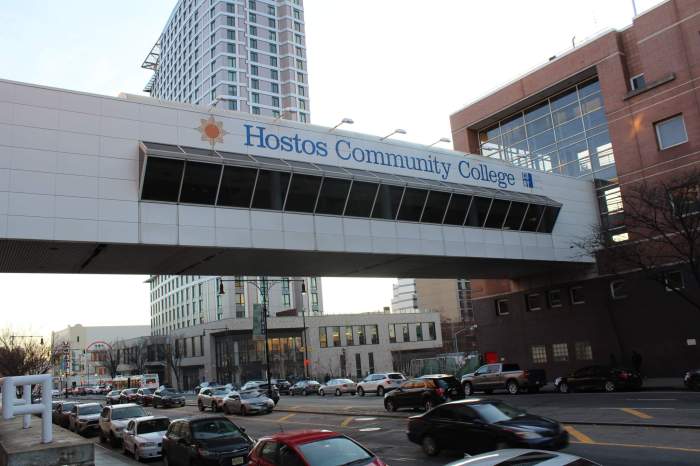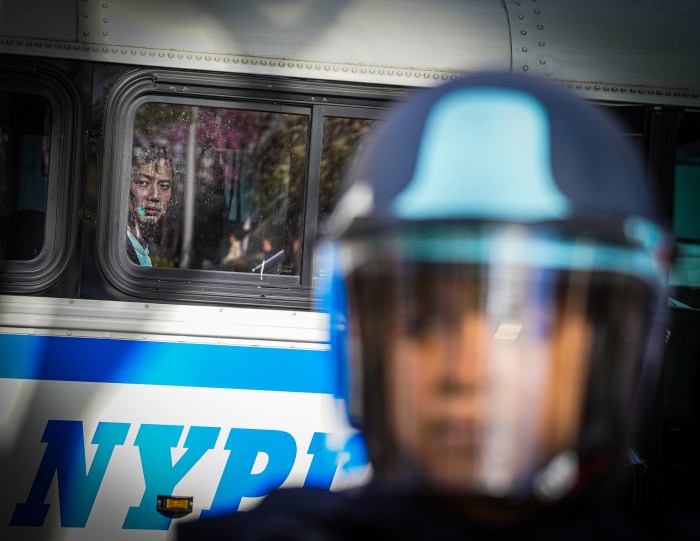California Supreme Court hears arguments on validity of same-sex unions OKed by mayor
Molly McKay arrived at the California Supreme Court’s hearing about San Francisco’s marriages on Tuesday—as she has at dozens of protests for gay marriage—in her brilliant white flowing wedding dress. She and her entourage streamed through the metal detectors at the entrance to the city’s state office building at 8:30 that morning, as the security guards stared, wondering if it were a gag or trouble.
McKay is the leader of Marriage Equality California and is now into wedding dress number five since she began campaigning in 1998. She, and the woman she calls her wife, Davina Kotulski, were couple number 17 to be married when San Francisco Mayor Gavin Newsom began same sex weddings on February 12. And so McKay, who is also the deputy director of California’s gay rights lobby, had a personal stake in the Supreme Court debate that day about whether Newsom had overstepped his powers—and whether the court would let the marriages stand.
The state Supreme Court has refused to hear any of the arguments about whether the state’s family-code prohibition on same-sex marriage is constitutional. The justices said they would reserve that judgment until a series of other lawsuits wend their way through the state’s court system and finally to them—a process that advocates, speaking optimistically, predict will take at least a year.
But after the state’s attorney general, Bill Lockyer, asked the court to step in and stop the marriages, which they did on March 11, the court said they would decide only the much narrower issue of whether Newsom had the authority to start the weddings. They also asked for briefs from both sides on the issue of whether they should let the roughly 4,000 couples, who were pronounced “spouses for life” during their City Hall ceremonies, stay in the legal limbo of their marriages, recognized by the City of San Francisco but almost no one else, until the constitutional question is resolved.
Even McKay, and some of the strongest advocates for same-sex marriage here like Kate Kendell, a lawyer who heads the National Center for Lesbian Rights, concede that Newsom was on very thin legal ice when he started the weddings. McKay, who herself is a University of California Hastings Law School alumna, called that part of the argument an “uphill battle.”
During the hearing, the justices peppered San Francisco Chief Deputy City Attorney Therese Stewart, who is defending the city, with questions about what would happen if local authorities were generally free to enforce laws as they wished.
“Would your argument be the same if the police refused to enforce gun control laws?” quizzed Chief Justice Ronald George.
“Generally the answer is yes,” Stewart had to concede. “There could be a limiting principle.”
Later, outside on the courthouse steps, Kendell said that it will come down to that limiting principle, to where, as Stewart said inside during her argument, the court chooses to draw the line of what a mayor, acting on his own, can do to test state law.
“The court expressed concern about the mayor’s authority,” Kendell said, understating the barrage of questions Stewart got, “but even if Newsom had no authority, they could refuse to invalidate the marriages.”
That second question, what will the court do with the couples who now think they are married—at least in the eyes of San Francisco—left most observers wondering. McKay said that the thing that made her the most concerned was that there was no legal representation for the 4,000 couples in the courtroom. Her group, Equality California, had asked to join the suits on behalf of the newlyweds, but was told no by the court.
“I wanted to stand up and scream at the TV screen,” she said. The fact that the Alliance Defense Fund, one of the anti-gay groups involved in the litigation, was given two chances to speak and the couples got none left McKay, she said, “pissed.”
But it may be that apparent denial of due process that gives the Supreme Court an out. City Attorney Stewart’s first argument on the validity of the marriages is that the Supreme Court cannot rule for that simple reason: that the couples have not had their day in court and therefore the marriages must stand until they do.
“It would be preposterous to presume what is in the couples’ best interest without hearing from them,” Kendell said.
The justices have up to 90 days to rule, and Kendell guessed that this relatively conservative court, with the right wing held up by Justices Janice Brown and Marvin Baxter, who called the marriages “this mess that Mayor Newsom made,” might do anything.
After the hearing, McKay said she felt “a bit deflated,” as she took questions on the courthouse steps where five satellite trucks and 12 television crews had assembled. Later she said, “I see what Mayor Newsom did regardless of what the justices decide, as a really positive thing. It allowed the world to see real live couples—and it immediately dispelled many of the myths of what gay marriage would mean.”
McKay thinks legalizing gay marriage in California will be a race between the state courts and the Legislature, where a same-sex marriage bill has had hearings, but no positive action. The bill’s sponsor, out gay Assemblymember Mark Leno (D-San Francisco) has promised to introduce it again next legislative session, this time with the full support of the Assembly’s Democratic leadership—where it will probably be debated at about this time next year.

































